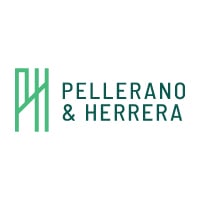

Legal manager | Cementos Progreso Dominicana



Tania Feliz Tejada
Legal manager | Cementos Progreso Dominicana
How do you approach managing legal aspects during periods of instability or crisis to ensure the organisation’s resilience?
During periods of crisis or instability, our legal department focuses on ensuring regulatory compliance and operational continuity. We begin with a comprehensive assessment of the situation causing the instability, identifying the most critical legal impacts and potential breaches in order to address risks strategically, from the most significant to the seemingly minor, which we never underestimate.
Beyond reactive measures, we strongly believe that prevention and collaboration are the cornerstones of effective crisis management. The company has a risk committee in which the legal department plays a key role, allowing us to anticipate critical scenarios and propose efficient mitigation strategies.
Our main contributions include the continuous monitoring of local and international regulatory changes, enabling early identification of legal risks, drafting contracts with preventive clauses, such as unilateral exit mechanisms, clearly defined obligations, and flexible structures, as well as periodic reviews of contractual and regulatory relationships with key stakeholders, in order to ensure rapid response in the face of contingencies, and direct and ongoing counsel to senior management and governance bodies, supporting decision-making with well-founded legal analysis.
In exceptional cases, we also rely on our “Águilas” advisory team composed of former employees with over 15 years of experience in the company, selected for their institutional knowledge. Their involvement in special projects and crisis scenarios has added significant value and is considered a best practice within our organisation.
In summary, the legal department provides stability, a preventive mindset, and operational
agility, serving as a fundamental pillar of the organisation’s resilience strategy.
Based on your experiences in the past year, are there any trends in the legal or business world that you are keeping an eye on that you think other in-house lawyers should be mindful of?
Over the past year, I have observed a growing trend in the importance of regulatory law, particularly environmental law, which I believe in-house lawyers should pay close attention to. As governments respond to increasing environmental concerns, we are seeing more restrictive legislation and higher environmental compliance standards.
This shift is driven not only by the state’s duty to protect natural resources and ecosystems but also by rising public and consumer expectations for sustainable and socially responsible business practices. Companies are expected to be more accountable and resilient, which presents both legal and operational challenges.
For in-house counsel, this means being proactive in understanding upcoming regulatory changes, advising leadership on environmental risks, and ensuring compliance frameworks are in place. Legal teams also have a strategic role in guiding the company toward sustainable practices that align with both regulatory demands and corporate values.
What factors influence your team’s decision to use external legal services versus handling matters in-house, and what criteria are used to evaluate their performance?
Our legal department generally relies on external law firms for litigation and debt recovery matters, as our current internal structure does not support in-house litigation and debt recovery.
We also consult external counsel for specialized legal matters, particularly regulatory analyses with fiscal, administrative, or environmental implications.
When assessing external legal services, we focus on three key criteria: responsiveness, effectiveness of outcomes, and the quality of communication and collaboration throughout the engagement.